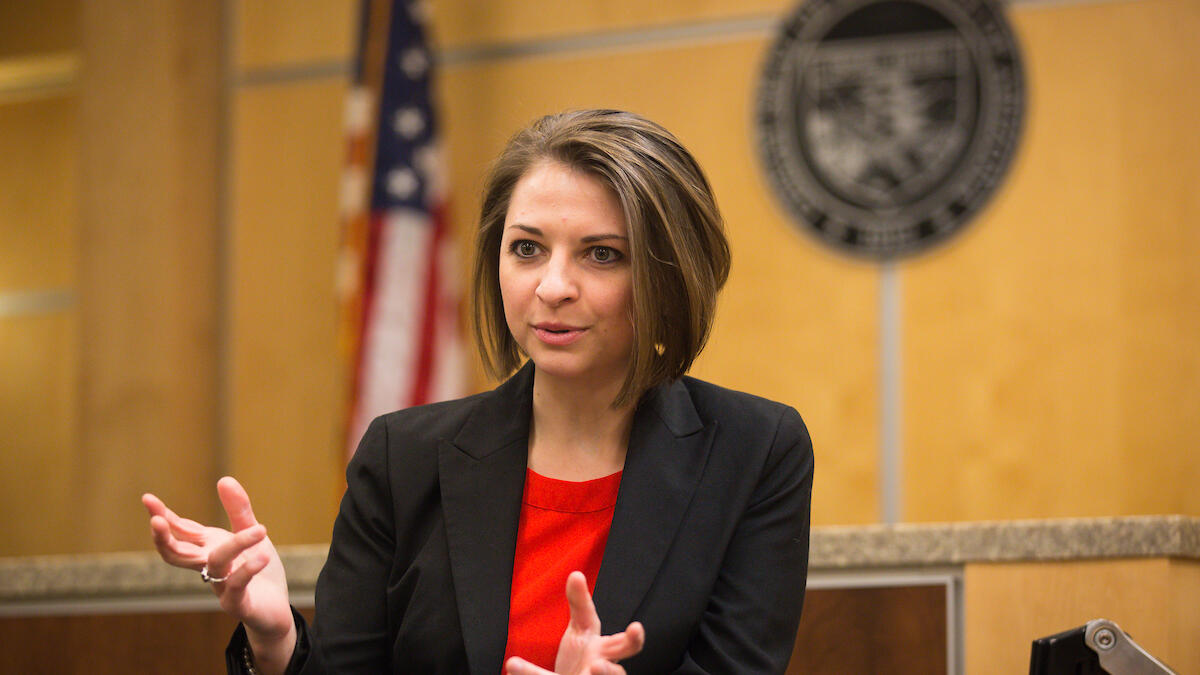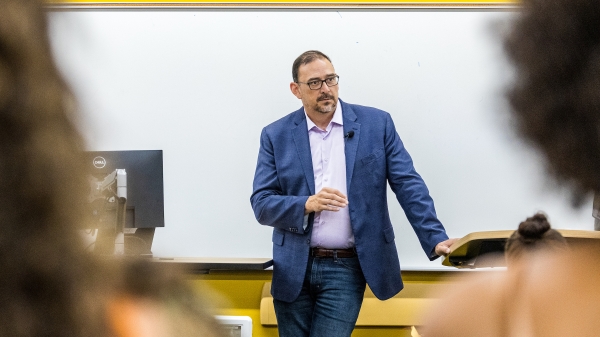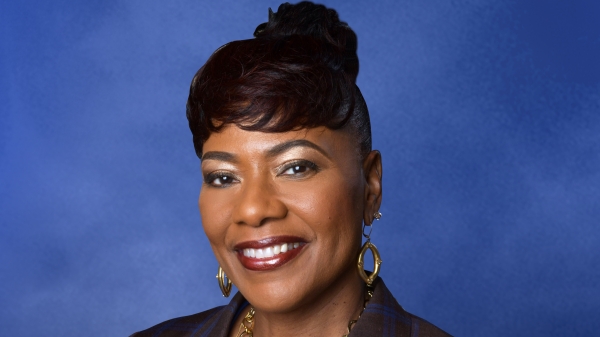ASU study shows ‘junk science’ used as evidence in court

Tess Neal, assistant professor of psychology at ASU’s New College, studies the intersection of law and psychology.
In thousands of cases each year in courtrooms across the U.S. and beyond, a person’s fate could hang upon the results of any one of at least 350 different psychological tests that judges routinely allow to be admitted as evidence. Yet new research at Arizona State University’s New College of Interdisciplinary Arts and Sciences shows that most of these tests and tools have not been reviewed in the most prominent journals, and of those that have been scrutinized, only 40% were judged favorably. Nearly a quarter were rated as unreliable.
Psychological tests can be used in court to help determine cases such as child custody or aid in judges' sentencing decisions, including on the death penalty. These tools included aptitude tests, achievement tests and personality tests. Tess Neal is an assistant professor of psychology at ASU’s New College, and spent the last three years leading a team that combed through court cases from coast to coast.
“There’s huge variability in the psychological tools now being admitted in U.S. courts,” she said.
Neal presented the findings at the recent annual meeting of the American Association for the Advancement of Science in Seattle during the talk, “Psychological assessments and the law: Are courts screening out 'junk science?'”
“Courts are required to screen out the ‘junk science,’ but rulings regarding psychological assessment evidence are rare. Their admissibility is only challenged in a fraction of cases,” said Neal. “When challenges are raised, they succeed only about a third of the time. Challenges to the most scientifically suspect tools are almost nonexistent. Attorneys rarely challenge psychological expert assessment evidence, and when they do, judges often fail to exercise the scrutiny required by law.”
ASU Assistant Professor Tess Neal participates in a press conference on Feb. 15 at the annual meeting of the American Association for the Advancement of Science (AAAS) answering media's questions about her newest research.
Neal and her team suggest that a greater awareness of questionable testing tools is needed across the legal system, including among psychological scientists, mental health practitioners, lawyers, judges and community advocates. In an open-access paper just released, the team offers tangible suggestions that psychological scientists should create stronger measures and encourage experts to use tools that are valid and suitable for the task at hand.
Overall, Neal and colleagues hope that their findings encourage psychological scientists, psychologists serving as experts in legal contexts, attorneys and judges, and members of the public to improve their own and others’ knowledge about psychological assessment and to question these tools more often. This way, psychological experts involved in legal cases might produce the highest quality of practice, Neal and colleagues suggest.
More Law, journalism and politics

ASU's Carnegie-Knight News21 project examines the state of American democracy
In the latest project of Carnegie-Knight News21, a national reporting initiative and fellowship headquartered at Arizona State…

Arizona secretary of state encourages students to vote
Arizona Secretary of State Adrian Fontes looked right and left, taking in the more than 100 students who gathered to hear him…

Peace advocate Bernice A. King to speak at ASU in October
Bernice A. King is committed to creating a more peaceful, just and humane world through nonviolent social change.“We cannot…